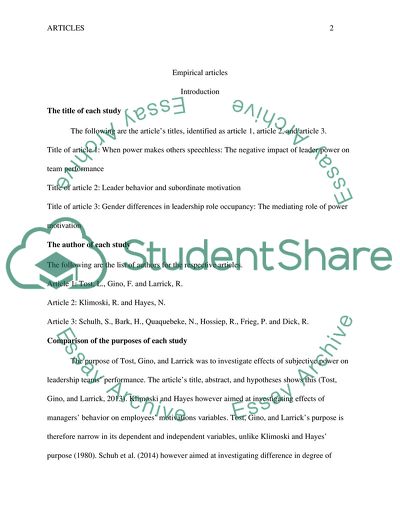Cite this document
(The Effects of Subjective Power Experience on Leadership Variables and Team Performance Literature review Example | Topics and Well Written Essays - 1250 words, n.d.)
The Effects of Subjective Power Experience on Leadership Variables and Team Performance Literature review Example | Topics and Well Written Essays - 1250 words. https://studentshare.org/sociology/1819364-empirical-articles
The Effects of Subjective Power Experience on Leadership Variables and Team Performance Literature review Example | Topics and Well Written Essays - 1250 words. https://studentshare.org/sociology/1819364-empirical-articles
(The Effects of Subjective Power Experience on Leadership Variables and Team Performance Literature Review Example | Topics and Well Written Essays - 1250 Words)
The Effects of Subjective Power Experience on Leadership Variables and Team Performance Literature Review Example | Topics and Well Written Essays - 1250 Words. https://studentshare.org/sociology/1819364-empirical-articles.
The Effects of Subjective Power Experience on Leadership Variables and Team Performance Literature Review Example | Topics and Well Written Essays - 1250 Words. https://studentshare.org/sociology/1819364-empirical-articles.
“The Effects of Subjective Power Experience on Leadership Variables and Team Performance Literature Review Example | Topics and Well Written Essays - 1250 Words”. https://studentshare.org/sociology/1819364-empirical-articles.


